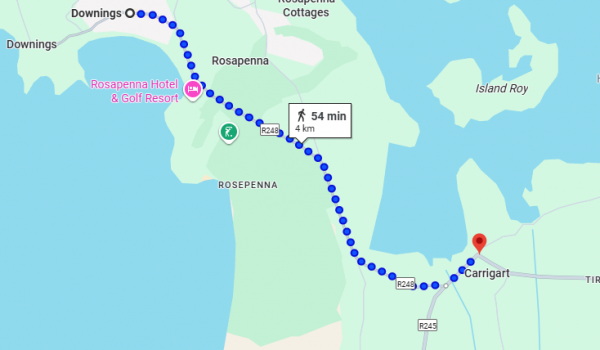
A research team from NUI Galway and Queen’s University in Belfast is looking to recruit GPs in Donegal to take part in a cross border study focusing on the treatment of people with multiple long-term health conditions.
The MyComrade Plus multimorbidity project is bringing GPs together to discuss how they navigate the complications of multi morbidity such as costs, travel, and appointments.
Dr Lisa Hynes of the School of Medicine at NUI Galway is the Project manager. She says managing medicines can pose a particular problem………..
More details-
A research team from NUI Galway including partners from Queen’s University Belfast have been awarded funding for a cross-border primary care study called MyComrade+, focusing on people with multiple long-term health conditions, known as multimorbidity. The team is currently recruiting General Practices with more than one GP based in Donegal, Sligo and Leitrim to participate in the study.
The MyComrade+ multimorbidity project was awarded €500,000 in funding from the *CHITIN intervention trials project where people from border counties (Donegal, Leitrim, Sligo, Cavan, Monaghan and Louth) will benefit from new health and social care research trials.
Every day, General Practitioners (GPs) are seeing people living with multimorbidity. How patients are treated and the evidence used to draw up guidelines for doctors are usually based on one single condition. For example, research is conducted on patients with diabetes and guidelines are developed for managing patients’ diabetes treatment plan. However, for patients with multimorbidity, there are many challenges, one of which is the management of multiple medications and treatment plans.
A wide range of issues arise from multimorbidity for individuals, families, society and health services, that directly impacts people’s quality of life when dealing with multiple treatment plans, navigating a range of medical specialists for different conditions, and costs, such as medicine, travel and appointments. Treatment recommendations by GPs are generally made by looking up evidence-based guidelines. However, since everyone living with more than one condition is different, guidelines are not always very helpful.
Research has shown that the overwhelming experience of the GP in managing treatment for people living with multimorbidity is of isolation. GPs can feel uncertain and unsupported professionally, to make the best medication recommendations for their patients.
Professor Andrew Murphy, School of Medicine and MyComrade+ project lead, said: “General Practitioners face many and increasing demands and challenges. The MyComrade+ study may help to address a common and difficult challenge for GPs and growing numbers of members of the public alike, on how best to manage the many medicines that patients are now taking.”
The MyComrade+ cross-border primary care initiative includes a team of partners from Queen’s University Belfast, General Practitioners, nurses, psychologists, and is led by Professor Andrew Murphy from the College of Medicine, Nursing and Health Sciences in NUI Galway and clinician at Galway University Hospitals.
Dr Carol Sinnott (Cambridge University) developed the MyComrade+ intervention. Dr Sinnott embarked on a programme of research while based at UCC back in 2012 to understand and address the issues facing GPs in relation to multimorbidity management. Dr Sinnott utilised recommended tools for developing interventions that target complex healthcare problems, to understand the problem of multimorbidity management and design an effective solution, MyComrade+ by engaging with GPs as well as a multi-disciplinary team of experts.
General Practitioners in Donegal, Sligo and Leitrim who wish to participate in the study or require further information can contact lisa.hynes@nuigalway.ie or phone 091 492951.
The CHITIN Project has enabled €8.84 million in funding of 11 health intervention trials in the priority areas of Population Health, Primary Care and Older Peoples Services, Mental Health, Acute Services, Disability Services and Children’s Services. Match-funding for the project has also been provided by the Department of Health in Northern Ireland and Ireland. For more information, visit:https://research.hscni.net/
Podcast: Play in new window | Download





